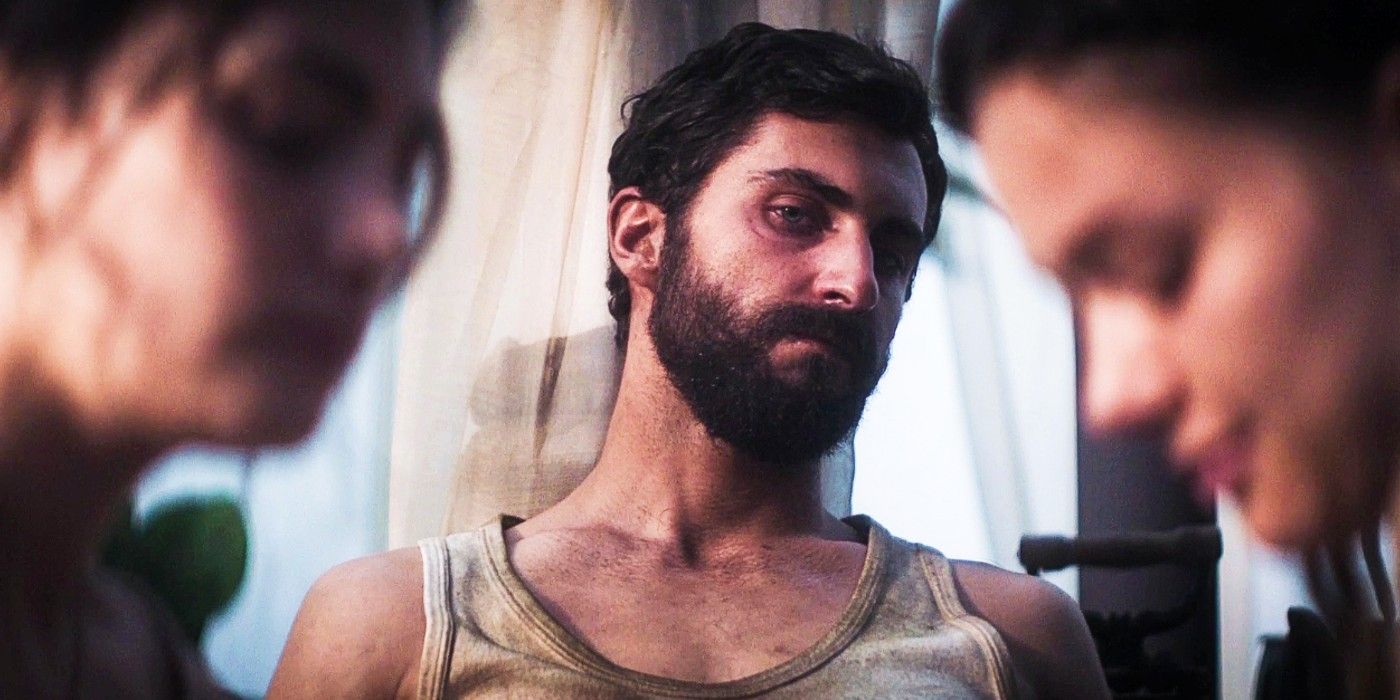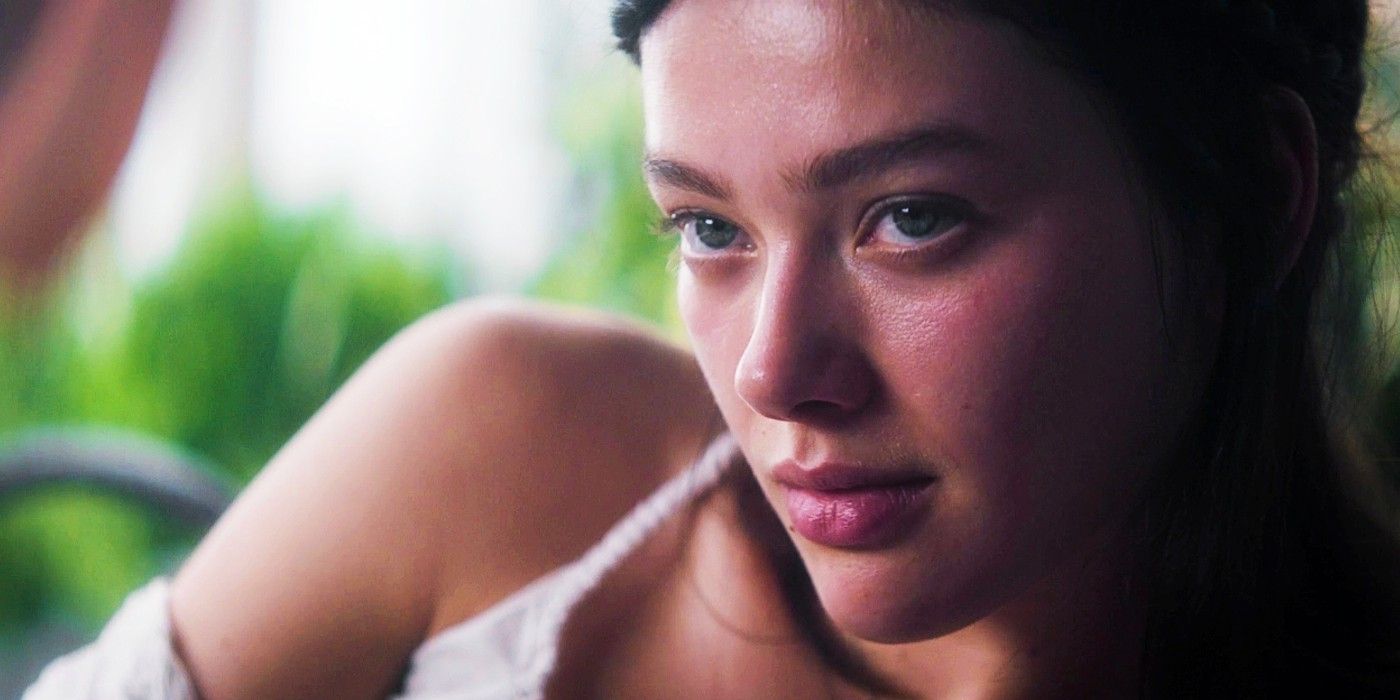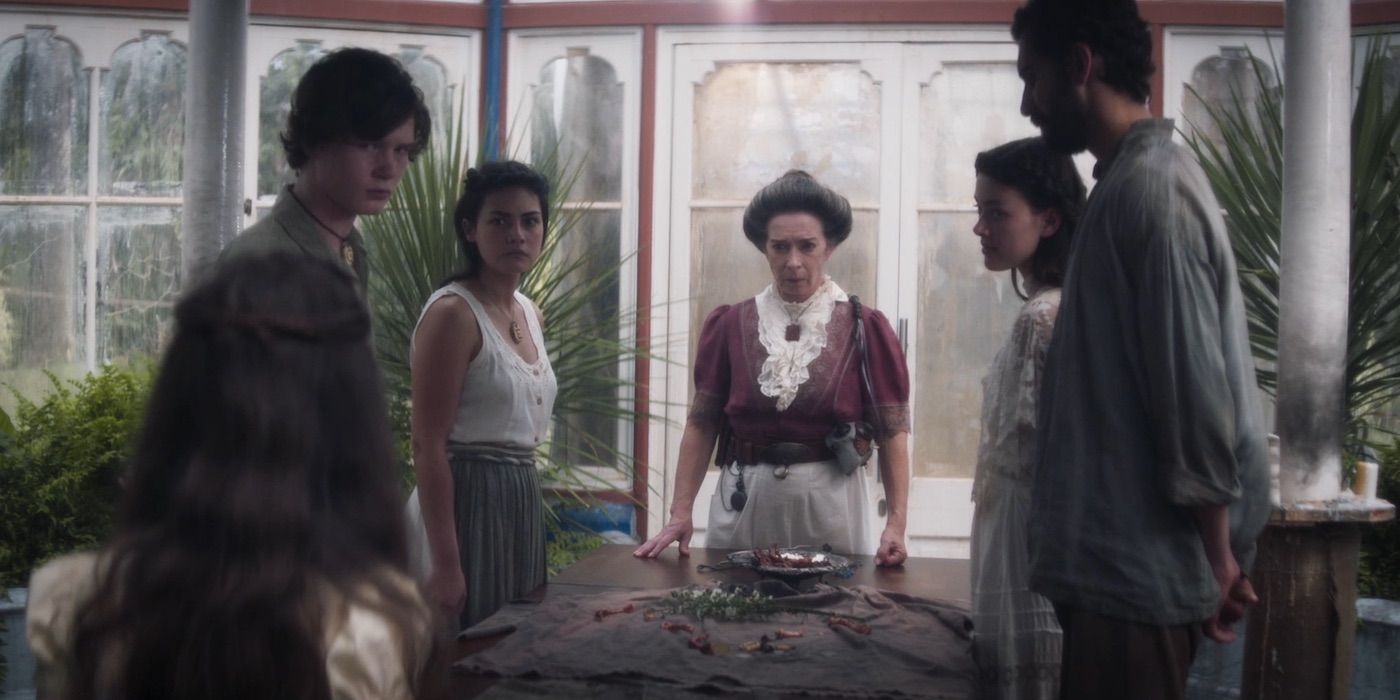Memory is a tricky thing and, roughly two and a half years into a worldwide pandemic, many people are grappling with what they remember or what some people are choosing to forget. Glasshouse — a movie about a pandemic that affects memory dubbed "the shred" — questions the importance of memory and what use it has to people when it becomes worthless to most and precious to very few. Underscored by a sinister sweetness that feels rotted by the botanical hothouse it is set in, Glasshouse proves that restraint does well for the apocalypse and, even though the ending feels somewhat inevitable, there's beauty in it anyway.
Glasshouse follows three sisters — Evie (Anja Taljaard), Bee (Jessica Alexander), and Daisy (Kitty Harris) - living with Mother (Adrienne Pearce) and their shred-addled brother Gabe (Brent Vermeulen) in the titular home, safe from the airborne toxin that sours people's memories and turns them into mindless predators. Awaiting the return of their brother Luca, who left them when he was just a teenager, the family tends to their garden and kills anyone who approaches their sanctuary, eating the good parts and using the rest of their bodies as warnings against other trespassers. When an injured man (Hilton Pelser) arrives in their little Eden, their lives are thrown off balance by the new addition, who seems curiously unaffected by the shred. Could it be Luca, returned to the sanctuary at last, or is it just a random stranger, sent by the world to disrupt the few bits of peace they've crafted in their solitude?
Glasshouse most notably evokes The Beguiled, remade in 2017 by Sofia Coppola but originally brought to the screen by Clint Eastwood in 1971. From the Victorian garb to the Edenic-like surroundings (what they call the sanctuary), there's a sense of restraint early on in Glasshouse despite glimpses of severed limbs and foot-long scars stitched up by thread. This restraint gives way to a quiet dread when the stranger arrives and piques the interest of the two eldest daughters. Director Kelsey Egan, who also co-wrote the script with Emma Lungiswa de Wet, uses this restraint to great effect as she maps out where audiences will spend the next hour and a half, the only green place within three days' walk according to the injured stranger.
While the premise itself may seem like an apocalyptic retread of the aforementioned film, it's the pandemic that adds a new layer to the proceedings. The question of memory — its worth in an era that is losing its grasp on it and the currency it becomes in microcosmic societies like the sanctuary in the film — complicates things, splitting the family when they need each other most. Like the film, memory divides people now. Who remembers what (and what kind of value they assign to these memories) informs the way people operate in the world, much like it does the family in Glasshouse. The stakes are smaller, but they are in no way less vital. Memory becomes even more precious when its use is whittled down to six people, one of whom has already lost their grasp on it.
The sense of timelessness and the sanctuary (itself a bubble made to burst) add a listlessness to the film that only underscores the constant shifting of the family's foundation. Glasshouse may build to a climax that many can see coming, but that's beside the point. The conclusion plays off what has come before it, feeling like a memory that could have easily been forgotten. Certain stability is once again achieved, but the cost of it is clear. Some things are worth forgetting when trying to build a new world. New memories replace old ones, making the past seem less significant. Whether that's a solid foundation to build a future on is a question that the film leaves one pondering, one that resonates beyond the confines of the sanctuary in Glasshouse and bleeds into the collective idea of remembrance.
Glasshouse is available on demand as of July 12. The film is 97 minutes long and currently unrated.



